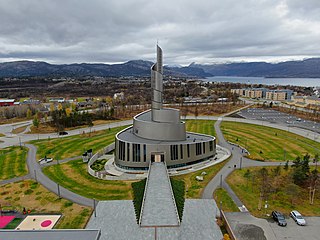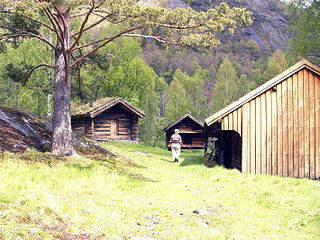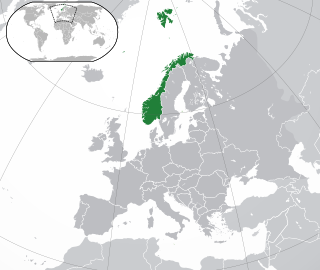Related Research Articles

A psychologist is a professional who practices psychology and studies mental states, perceptual, cognitive, emotional, and social processes and behavior. Their work often involves the experimentation, observation, and interpretation of how individuals relate to each other and to their environments.

Alta is the most populated municipality in Finnmark county, Norway. The administrative centre of the municipality is the town of Alta. Some of the main villages in the municipality include Kåfjord, Komagfjord, Kvenvik, Langfjordbotn, Leirbotn, Rafsbotn, Talvik, and Tverrelvdalen.

is a municipality in Finnmark county, Norway. The administrative centre of the municipality is the village of Mehamn. The other notable villages in Gamvik include Gamvik and Skjånes. Gamvik is known as one of the poorest and most undeveloped municipalities in Norway. The number of inhabitants rose at one moment in 2012, but in 2014, after the fish factory closed, the population declined dramatically with the departure of the eastern European fishermen.

Ulvik is a municipality in Vestland county, Norway. The municipality stretches from the Hardangerfjord to the mountains that reach 1,800 metres (5,900 ft) above sea level. The administrative centre of the municipality is the village of Ulvik. The villages of Osa and Finse are also located in Ulvik municipality.

Evje og Hornnes is a municipality in Agder county, Norway. It is located in the traditional district of Setesdal. The administrative centre of the municipality is the village of Evje. Other villages in the municipality include Åneland, Dåsnesmoen, Flatebygd, Gautestad, Hornnes, Kjetså, and Øvre Dåsvatn. Evje og Hornnes was created as a new municipality on 1 January 1960 after the merger of the two older municipalities of Evje and Hornnes. The Norwegian National Road 9 runs north–south through the municipality, along the river Otra.

Agdenes is a former municipality in Trøndelag county, Norway. The 317-square-kilometre (122 sq mi) municipality existed from 1896 until its dissolution in 2020 when it became part of Orkland Municipality. It was part of the Fosen region. The administrative centre was the village of Selbekken. Other villages in the municipality included Ingdalen, Lensvik, Vassbygda, Vernes, and Leksa. The Brekstad–Valset Ferry connected Agdenes to the town of Brekstad in Ørland municipality on the other side of the Trondheimsfjorden.

Aure is a municipality in Møre og Romsdal county, Norway. It is part of the region of Nordmøre. The administrative centre is the village of Aure. Other villages in Aure include Gullstein, Stemshaug, Todalen, Tjeldbergodden, Arasvika, and Tømmervåg. Aure has one of the largest wooden churches in Norway, Aure Church.

Johan Nygaardsvold was a Norwegian politician from the Labour Party who served as the 21st prime minister of Norway from 1935 to 1945. From June 1940 until May 1945, he oversaw the Norwegian Government-in-exile from London as head of the Nygaardsvold cabinet during the occupation of Norway by Nazi Germany.
The Royal Norwegian Ministry of Health and Care Services is a Norwegian government ministry in charge of health policy, public health, health care services, and health legislation in Norway. It is led by the Minister of Health and Care Services.

The Norwegian Academy of Science and Letters is a learned society based in Oslo, Norway. Its purpose is to support the advancement of science and scholarship in Norway.

Lesbian, gay, bisexual, transgender, and queer (LGBTQ) people in Norway have the same legal rights as non-LGBTQ people. In 1981, Norway became one of the first countries in the world to enact an anti-discrimination law explicitly including sexual orientation. Same-sex marriage, adoption, and assisted insemination treatments for lesbian couples have been legal since 2009. In 2016, Norway became the fourth country in Europe to pass a law allowing the change of legal sex for transgender people based on self-determination. On 1 January 2024, conversion therapy became legally banned within Norway.

The Norwegian Police Service is the Norwegian national civilian police agency. The service dates to the 13th century when the first sheriffs were appointed, and the current structure established in 2003. It comprises a central National Police Directorate, seven specialty agencies and twelve police districts. The government agency is subordinate to the Ministry of Justice and Public Security and has 16,000 employees, of which 8,000 are police officers. In addition to police powers, the service is responsible for border control, certain civil duties, coordinating search and rescue operations, counterterrorism, highway patrolling, writ of execution, criminal investigation and prosecution. The directorate is led by National Police Commissioner Marie Benedicte Bjørnland.
A regional health authority is a state-owned enterprise responsible for specialist healthcare in one of four regions of Norway. Responsibilities of the RHFs include patient treatment, education of medical staff, research and training of patients and relatives. Areas covered by the authorities are hospitals, psychiatry, ambulance service, operation of pharmacies at the hospitals, emergency telephone number and laboratories. The actual performance is done by subsidiary health trusts (HF) that usually consist of one or more hospitals, with associate responsibilities. The authorities are subordinate to the Norwegian Ministry of Health and Care Services.
The Government agencies of Norway are state-controlled organizations that act independently to carry out the policies of the Government of Norway. The government ministries are relatively small and merely policy-making organizations, allowed to control agencies by policy decisions but not by direct orders. A minister is explicitly prohibited from interfering with the day-to-day operation in an agency or the outcome in individual cases. While no minister is allowed to give orders to agencies personally, they are subject to decisions made by the government. Also, the minister is normally the instance of appeals for agency decisions.

Marit Nybakk is a Norwegian politician for the Labour Party, a former First Vice-president of the Norwegian Parliament, the Storting, and a former President of the Nordic Council. From 2016 to 2018 she was President of the Norwegian Association for Women's Rights, the preeminent women's and girls' rights organisation in Norway.
The Norwegian Child Welfare Services is the public agency responsible for child welfare in Norway. They consist of services in each municipality, which are aided and supervised by different governmental bodies at the state as well as the county level.
Norway's elongated shape, its numerous internal geographical barriers and the often widely dispersed and separated settlements are all factors that have strongly influenced the structure of the country's administrative subdivisions. This structure has varied over time and is subject to continuous review. In 2017, the government decided to abolish some of the counties and to merge them with other counties to form larger ones, reducing the number of counties from 19 to 11, which was implemented on 1 January 2020. Following protests, the new government decided to abolish three of the new counties in 2022, and re-establish seven of the old ones. Taking effect on 1 January 2024 there are fifteen counties in Norway.

Anne Alvik is a Norwegian physician and civil servant.
The Pharmacy and Poisons Board is the Drug Regulatory Authority established under the Pharmacy and Poisons Act, Chapter 244 of the Laws of Kenya.
Stefan Kutzsche is a Norwegian paediatrician, neonatologist and anaesthesiologist. His research fields include neonatology and neuroscience, medical ethics, education, and the history of medicine.
References
- ↑ Godkjenning som lege i Norge; om vilkårene for norsk godkjenning av leger utdannet i andre land, Oslo, Norwegian Board of Health Supervision, 1994
- ↑ Maren Skaset, I gode og onde dager; de norske legene og staten 1945–2000, Unipub, 2006